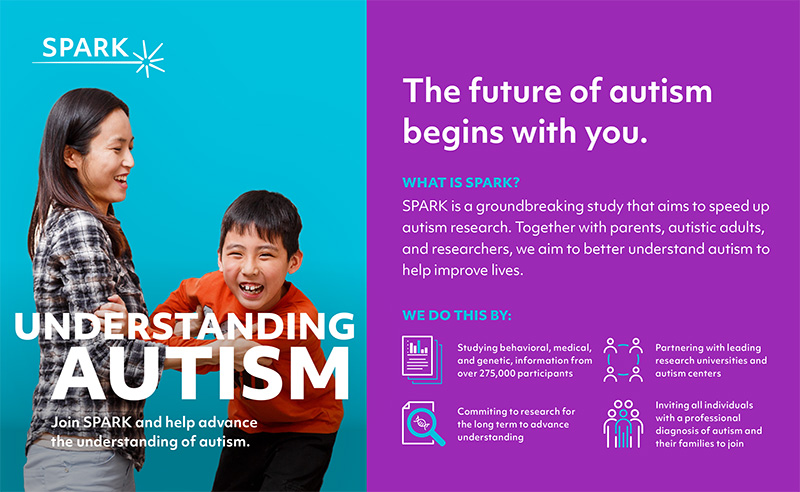This is the second of two articles about depression in people with autism. Part 1 is Diagnosing Depression in People with Autism.
Thanks to research, we know more about depression in children and adults with autism than we used to know. Scientists have studied the rates of depression, risk factors for it, and ways to diagnose it in people on the spectrum. But we know much less about how the typical treatments for depression work in them.

“We definitely do not have anything that’s a gold standard, at this point in time, in terms of treating depression in people with autism,” says Rowan University psychologist Katherine Gotham, PhD, who researches autism and depression.
Research into treating depression in autism is lagging behind efforts to describe and assess these problems, according to a 2014 article by autism researchers.1 This is not surprising, they say, because scientists need to understand a problem before it can be treated.
Gotham and other researchers have noted the lack of rigorous research into medicines for depression in people with autism.2 As of September 2020, no one has completed and published a randomized controlled trial of antidepressants for treating depression in children and adolescents who have autism, she says. In a randomized controlled trial, scientists randomly assign people to different groups that receive either a drug or a sugar pill, and then compare their responses. This kind of study is considered the best way to see if a medication works well for a condition.
People who have autism are four times more likely to experience depression during their lifetime than the general population, according to a 2019 analysis. About 40 percent of autistic adults, and 8 percent of youth, have had depression.3 Depression increases the risk of suicide. Studies show that people with autism are at higher risk for suicidal thoughts, plans, or actions than the general public, although how much higher varies widely among the studies.4-8
Of course, that does not mean that children, teens, and adults with autism are not being treated successfully for depression. Faced with limited data about autism and depression, doctors often rely on their clinical experience to treat depressed patients who have autism.
“Certainly, people with autism respond to the traditional treatments for depression,” says psychiatrist Robert Wisner-Carlson, MD. Wisner-Carlson is chief of the Autism and Neurodevelopmental Outpatient Program at Sheppard Pratt, a mental and behavioral health system in Towson, Maryland. He says that those treatments may include:
- Antidepressant medicine – Clinical experience suggests that one type, Selective Serotonin Reuptake Inhibitors or SSRIs, “are useful and generally safe” in autism, according to an article by psychiatrists at the University of North Carolina-Chapel Hill.9 SSRIs, which include Prozac and Zoloft, are also used to treat some anxiety disorders.
- Counseling
- Cognitive behavioral therapy, which helps someone change their distorted thoughts
- Mindfulness therapy, which involves breathing and relaxation techniques
Sometimes those treatments need to be changed for people who have autism. For example, researchers and doctors say that people with autism may be more likely to have certain side effects from SSRIs, such as impulsive or irritable behavior and trouble sleeping. That appears to be especially true in children and teens.10 Doctors may recommend starting at a low dose and slowly increasing it for these youth if necessary.2,11
Other possible side effects of these drugs include suicidal thoughts and behaviors in teenagers, or a worsening of mood problems in people who have bipolar disorder.
These medications “should be prescribed cautiously in youth with ASD [autism spectrum disorder], with close monitoring,” according to an article about anxiety in the medical journal Pediatrics.11
When evaluating depressed patients, psychiatrists consider whether they may have bipolar disorder. Bipolar disorder involves periods of depression and mania. “There’s some evidence that the incidence of bipolar disorder may be higher in people with autism. So, you also have to be looking at whether the person has periods that meet, or partially meet, the criteria for mania. Is there a family history of bipolar disorder?” Wisner-Carlson says. Bipolar depression is often treated with different medicines than those used to treat major depression.
Doctors sometimes prescribe certain antipsychotic medication, in combination with another drug, to treat severe depression in the general population, according to the National Institute of Mental Health. A study of 53 adults who were hospitalized with depression found that antipsychotics were often prescribed to the patients who had both autism and intellectual disability.12
Combining Treatments for Depression
Janet, who asked to be anonymous, says that she has struggled with depression since a difficult childhood. “I don’t think I’ve lived any segment of my life without depression on some level, but I cope with it usually by having structure and having a goal,” says Janet, an autistic participant in the SPARK autism study. About 10 years ago, she was diagnosed with depression and prescribed an SSRI. But she had a serious side effect, so she can only take low doses of an antidepressant.
“I’m a big believer in you don’t take any kind of medication for depression without pairing it with talk therapy or cognitive behavioral therapy or something like that, so I’ve always done that,” she adds.
Therapies for Depression that Don’t Involve Medication
Unlike medication, there is more research into non-drug therapies for children and adults who have autism. But many of the studies are small and do not include a broad range of people on the spectrum.
In cognitive behavioral therapy, or CBT, a therapist helps a patient change unhelpful thoughts and behaviors. That can improve mood and coping. According to clinical psychologists Tony Attwood and Michelle Garnett, this therapy involves these ideas:
- Our perceptions or thoughts about events, people, and situations determine our behaviors,
- The consequences of our behavior affect how often we repeat them, and
- We can monitor and change our thoughts and behavior over time.13
Some researchers have examined ways to modify CBT to treat depression and anxiety in people with autism. These changes include using concrete language and images, and incorporating the patient’s special interests. Many people on the spectrum have an intense interest in a favorite topic or activity.
A small study in Australia showed that a CBT program called “think well, feel well and be well” helped to decrease symptoms of depression and stress in teenagers and young adults with mild forms of autism. In that study, participants were taught that how they look at a situation, whether as a threat or as a challenge, affects their emotions and thoughts.14 Other small studies showed that CBT held promise for treating autistic adolescents or adults with depression.15
Mindfulness Therapy and Autism
One study of autistic adults in the Netherlands suggested that a mindfulness therapy that was adapted for autism was helpful. As part of the therapy, 20 adults were taught to pay attention to experiences “in the present moment in a nonjudgmental and accepting way.” They learned breathing exercises and how to meditate for 40 to 60 minutes daily, for six days a week. A similar group of 21 adults with autism received no therapy and served as a comparison group for the treatment group.16
The therapy group showed a drop in symptoms of depression and anxiety compared to the comparison group.
The adults in that study had intelligence scores in the average range. In fact, many of the studies of CBT and mindfulness do not include people who have intellectual disability or limited speech. For that reason, it’s not known how those therapies would work with them.
Some researchers have called for more studies of medication for depression to help people across the broad autism spectrum. “These studies should include some focus on minimally verbal individuals since they are less likely to benefit from the available psychological interventions,” according to two psychiatrists at UNC.9
Additional Resources
- The National Suicide Prevention Lifeline provides free, confidential support 24/7 at 1 (800) 273-8255 and by online chat. The lifeline also has prevention and crisis resources, and information for professionals.
- To find a cognitive therapist in your area, see the Academy of Cognitive and Behavioral Therapies.
- The National Association for the Dually Diagnosed for people with intellectual/developmental disabilities and mental health needs.
This article is based upon one that appeared on IANcommunity.org in 2016.
This article has been republished with permission from SPARK. You may view the original article, published on September 24, 2020, at https://sparkforautism.org/discover_article/treating-depression-autism/.
Footnotes
- Matson J.L. and L.W. Williams Res. Dev. Disabil. 35, 2003-2007 (2014) PubMed
- Pezzimenti F. et al. Child Adolesc. Psychiatr. Clin. N. Am. 28, 397-409 (2019) PubMed
- Hudson C.C. et al. J. Abnorm. Child Psychol. 47, 165-175 (2019) PubMed
- Cassidy S.A. et al. INSAR Presentation (2018) Abstract
- Croen L.A. et al. Autism 19, 814-823 (2015) PubMed
- Hirvikoski T. et al. INSAR Presentation (2018) Abstract
- Hedley D. and M. Uljarevic Curr. Dev. Disord. Rep. 5, 65-76 (2018) Abstract
- Chen M.H. et al. J. Clin. Psychiatry 78, e1174-e1179 (2017) PubMed
- Chandrasekhar T. and L. Sikich Dialogues Clin. Neurosci. 17, 219-227 (2015) PubMed
- Walkup J. and M. Labellarte J. Child Adolesc. Psychopharmacol. 11, 1-4 (2001) Abstract
- Vasa R.A. et al. Pediatrics 137, S115-S123 (2016) PubMed
- Charlot L. et al. J. Ment. Health Res. Intellect. Disabil. 1, 238-253 (2008) PubMed
- Attwood T. and M. Garnett Exploring depression and beating the blues: A CBT self-help guide to understanding and coping with depression in Asperger’s syndrome. Jessica Kingsley Publishers (2016)
- McGillivray J.A. and H.T. Evert J. Autism Dev. Disord. 44, 2041-2051 (2014) PubMed
- Sizoo B.B. and E. Kuiper Res. Dev. Disabil. 64, 47-55 (2017) PubMed
- Spek A.A. Res. Dev. Disabil. 34, 246-253 (2013) PubMed




